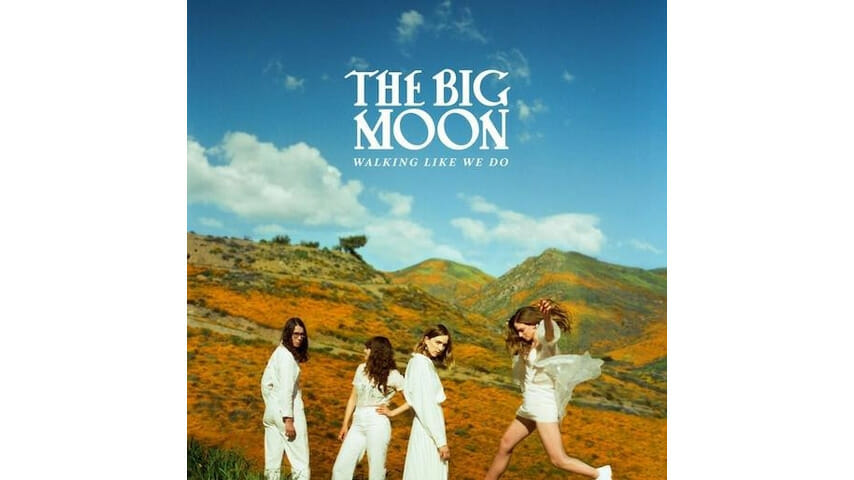The Big Moon’s Second Album is Sparkling and Sonically Diverse
On Walking Like We Do, the U.K. rock quartet’s risks have paid off

“But dark matter and your naked body / Fill in the space between all I can explain,” sings Juliette Jackson in the first verse of “Love in the 4th Dimension” from The Big Moon’s Mercury Prize-nominated debut album of the same name. But she’s capable of explaining more than she thinks. The lead singer of the London rock quartet excels at depicting the fluctuating intimacy between people and the circumstances that determine that distance. On “Pull the Other One,” her significant other is trying to forcefully enter the door that separates them. Throughout “Cupid,” she’s dodging the arrows of potential suitors, and on “Zeds,” she’s losing sleep night after night from yearning for someone. While Jackson’s relationships come and go, the band’s sticky pop melodies and playful shared vocals become burned into your psyche like that brace-faced, zit-covered school portrait that will haunt you forever.
On The Big Moon’s second album Walking Like We Do, their benevolent rock ‘n’ roll contains far more sonic possibilities. They expand far beyond the framework of their debut, but the hooks that made their first album so tantalizing are still here. Their first two singles are decidedly different than the rock rapture of “Bonfire” or the brooding guitar pop of “Formidable”: “It’s Easy Then” sounds like a rock song was dragged underwater and resurfaced as a bubbly synth-pop hit, and on “Your Light,” they swim to shore and bake in the sun with their positively radiant vocals and shimmering synths.
Elsewhere, “Waves” is a full-on piano ballad with only brief use of percussion, and the layered vocals in the minute-long outro constitute their most transcendent moment as a band so far. Even though it would’ve been a great album closer, it’s an unexpectedly angelic highlight. “Holy Roller” provides some vocal snarl and a rare instance of guitar ferocity while “Take a Piece” channels all your favorite cheesy ’90s pop groups—and their bucket hats, tracksuits and tube tops in the accompanying music video truly captures that vibe. It’s probably safe to say you won’t find many bands brave enough to churn out meaty guitar fuzz, then Backstreet Boys nostalgia on consecutive album tracks.
“Dog Eat Dog” is an even more noticeable departure. The flowy, piano-led song contains electronic percussion and operatic backing vocals. The track is also emblematic of the album’s expansion of lyrical themes. “They say it’s dog eat dog but / It’s more like pigeon eating fried chicken on the street,” Jackson sings, but underlying that humor is a social critique of systematic oppression. The song was inspired by London’s Grenfell Tower tragedy, and there are no Big Moon lines more searing than these: “I guess tailored suits don’t grow on trees / And tragedies eventually turn into memes / You only build bridges when the river wets your feet / You only felt the fire when you felt the heat.”
-

-

-

-

-

-

-

-

-

-

-

-

-

-

-

-

-

-

-

-

-

-

-

-

-

-

-

-

-

-

-

-

-

-

-

-

-

-

-

-








































